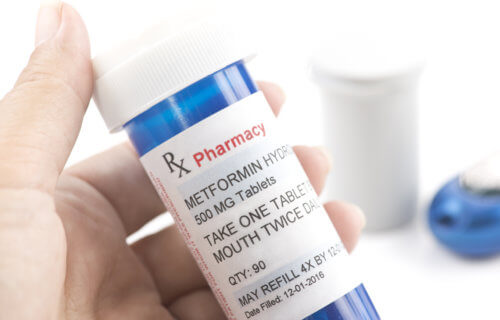MINNEAPOLIS — A common prescription medication for diabetes and prediabetes patients could be providing an added benefit — stopping lingering symptoms of COVID-19. Researchers reveal that taking a two-week course of metformin, a first-line diabetes drug, successfully dropped long COVID diagnoses by 40 percent.
“Long COVID is a significant public health emergency that may have lasting physical health, mental health, and economic impacts, especially in socioeconomically marginalized groups. There is an urgent need to find potential treatments and ways to prevent this disease. Our study showed that metformin, a medication that is safe, low-cost, and widely available, substantially reduces the risk of being diagnosed with long COVID if taken when first infected with the coronavirus. This trial does not indicate whether metformin would be effective as a treatment for those who already have long COVID,” says first author Dr. Carolyn Bramante from the University of Minnesota Medical School in a media release.
Although previous studies have looked into the relationship from the lab, this study is the first phase 3 randomized clinical trial to successfully show that a medication can reduce long COVID risk among the general public.
“Previous studies have found that metformin stops the SARS-CoV-2 virus from replicating in the lab, which is consistent with predictions from our mathematical modelling of viral replication, so that might be what is causing the reduction in both severe COVID-19 and long COVID diagnoses seen in this trial,” says co-author David Odde, a University of Minnesota biomedical engineer.

The trial included 1,126 overweight and obese people over 30 who tested positive for COVID-19 within the last three days but did not require hospitalization. Participants either received metformin or an identical placebo pill. Then, researchers followed up with the group for 10 months using data gathered by self-report questionnaires every 30 days.
Metformin prevented over 40 percent of long COVID cases in the trial with only 6.3 percent of participants taking metformin reporting a long COVID diagnosis within 10 months. Among the placebo group, 10.4 percent reported a case of long COVID. These findings are in alignment with previously published reports from the same trial, showing that metformin prevented over 40 percent of emergency department visits, hospitalizations, and COVID deaths within two weeks of starting the treatment.
Despite their findings, the team also recognizes the limitations of their work, such as the exclusion of people with a body mass index (BMI) under 25, and those under 30 years-old. The work is therefore not generalizable to the greater population. Also, since participants were recruited relatively early on during the pandemic (starting in December 2020), scientists didn’t know that much about the best tools for assessing cases of long COVID in clinical participants.
There are no definitive treatments for long COVID sufferers, which has negatively affected millions around the world. As such, although more research to validate the finding is necessary, this could be a step in the right direction.
“If confirmed, the findings from the study by Bramante and colleagues are profound and potentially landmark […] this is the first high-quality evidence from a randomized controlled trial to show that the incidence of long COVID can be reduced by a medical intervention, metformin—an inexpensive treatment with which clinicians have ample experience,” writes Dr. Jeremy Faust of Harvard Medical School, who did not take part in this research, in a statement.
The findings are published in The Lancet Infectious Diseases.
You might also be interested in:
- Long COVID worse than cancer? Scientists say ‘devastating’ fatigue can have bigger impact on quality of life
- Diabetes drug metformin shows promise in treating rare genetic disease in children
- How to avoid long COVID: These 5 factors are key to preventing severe infection

